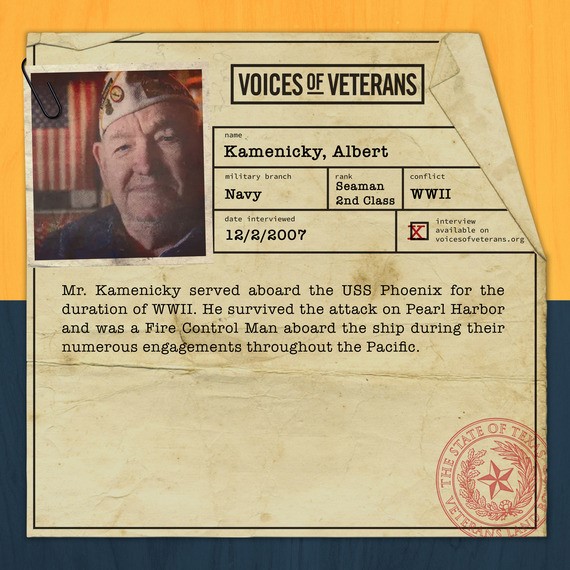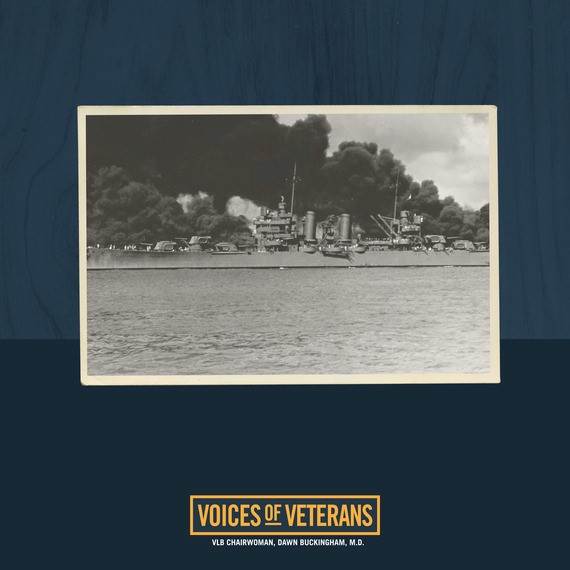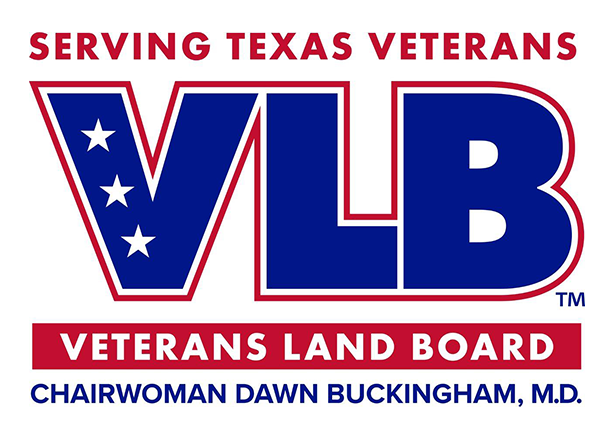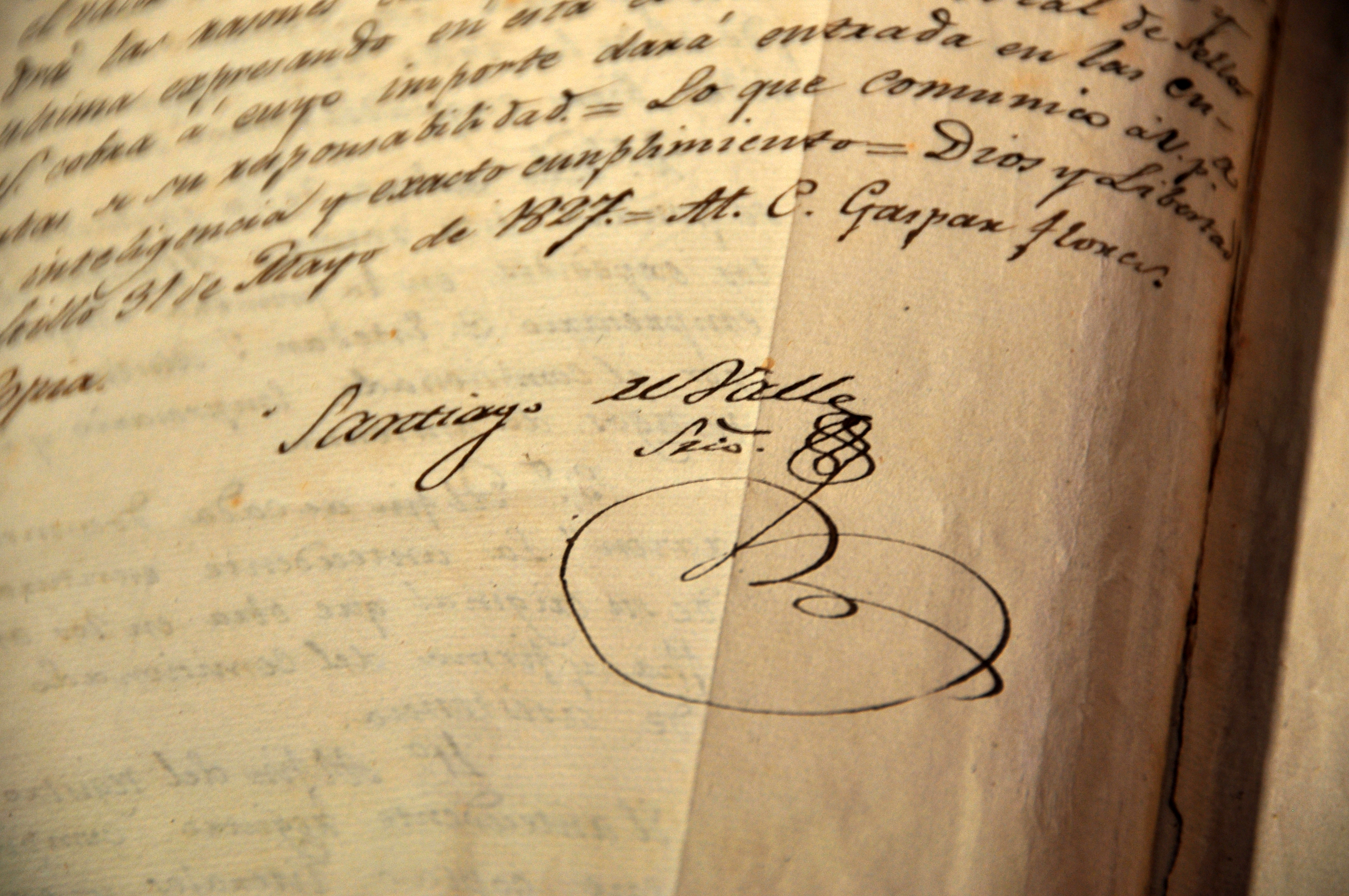Today, Texas Land Commissioner and Veterans Land Board (VLB) Chairwoman Dawn Buckingham, M.D., is proud to introduce the next installment of the series highlighting the VLB's Voices of Veterans oral history program. This week, as we approach the 83rd anniversary of the bombing of Pearl Harbor, we highlight the service of Seaman 2nd Class Albert Kamenicky's service in the U.S. Navy during WWII.
Born and raised in Central Texas, Kamenicky said his grandparents came from, what he calls, the old country, in Czechoslovakia near the Austria border. Kamenicky said his parents were born in Texas though, not far from his home in Temple.
"My dad was born in Cameron and my mother was born in uh, I think in the
West of, I say I think, she was born in Lower Milam County. She was on the farm there," Kamenicky explained. "I’m this full Texas family, born and raised here."

Even though he was born and raised in Texas, Kamenicky said before he went to public school, Czech was the only language spoken in the home, which means he didn't know English and found out pretty quickly he wasn't able to communicate.
"I did not know how to speak not one word of English, and in other words I was, we was from a Czech family, that’s all that was ever spoken at home and therefore I never did know we moved into this area that was, there was no Czechs in it," Kamenicky explained. "First couple of days and found out that me and the teacher could not understand one another, well I, I got real angered, disgusted with it, and I told my mama, I said, and she told me I had to learn this English. I told her then, I says well, if I ever learn it, I’ll never speak another word of Czech again. And to this day, I have not ever – well, I done forgot it."
Kamenicky said as he made his way through the public education system, he had his eyes set on attending Texas A&M University. He said his dad told him while he was attending Buckholt High School that he wasn't going to attend A&M and instead, he would teach him everything he knew. It wasn't long after that he chose the path to the U.S Navy, a decision he made without his consent at 17 years old.
"I had to get his consent later on, but my mother, she knew what was going on, but she wouldn’t tell, she didn’t tell him because of the friction we had between me – he told one of the guys that tried to sell him a tractor one time, he said well, I got a boy that’s we gonna have here on the farm. He said he can follow them mules and do a lot of the work that I’ve been doing," he recalled, adding he wanted a better life than a farm could offer when the work he'd do would often not pay.
Kamenicky said his decision to join the Navy wasn't influenced by the ongoing war, which had been going for two years. He said his decision to join was made knowing he would be drafted within the next year anyways, so the decision was easy because of that.
"I do know one thing, that lots of the guys that did go later on in the Army from here and waited till they got drafted, they’re not with us anymore. There’s a lot of ‘em got in that early Army, with you know, was a whole lot more dangerous than later on," Kamenicky said about how the war unfolded.

Kamenicky said he went to boot camp in San Diego and would soon find himself boarding a boat and was sent to Pearl Harbor and he arrived there in September 1941, just months before the Japanese attacked Hawaii's shore. Kamenicky said the day before the attack on Pearl Harbor, he was working aboard the Arizona before he got cleaned up and went ashore that evening.
"We went into Honolulu," Kamenicky said about the evening of December 6, 1941. "We had our dinner, you know, early and so I wasn’t really hungry, but I knew that we wasn’t gonna get back to the ship in time to eat uh, chow at supper as they called it."
While in Honolulu, he said he bought a silk pillowcase and had it sent back to his mom and also wrote a letter to send with it and in that letter he said he had feeling, a fleeting one, that war was coming.
"It was just a sort of a thought of, fleeting as they call it, a fleeting thought and, I don’t know," he explained. "I have I have that every once in a while when something’s gonna happen, I kind of get a feelin’ of something may happen, not knowing what it’s gonna be."
As history tells it, it would not be long before his intuition became a reality as less than 24 hours later, his fleeting feeling came true. The way he tells it, it came while he was dressed in his whites and was headed to sign out for his day off.
"I started up that hatch, and when I got up on top of the main deck, just right above the hatch, well that’s whenever that airplane come over and the first one that I saw, and they hit that Arizona," Kamenicky recalled as the events of Sunday, December 7, 1941 began for him. "I saw it, I saw it get blown up, all them 275 or so bags of powder that we handled the day before, well there it is was right in my face, and I mean it knocked, well the concussion you know, we was a pretty good ways from it, but its concussion come across there and, and I could still feel it."
Kamenicky said it was chaos and everyone was trying to figure out what was happening, and some, some thought it was a practice. It didn't take long before it became apparent this wasn't practice, it was real.
"We were just tryin’ to figure out, sayin’ 'well what them damn fools are doin’ – that was the main question, what are them damn fools doin’? They’re gettin’ a little too rough., they must’ve missed their targets, you know," Kamenicky said they reasoned in that moment. "But come to find out that by that time, it became apparent that that’s, that’s a got a red ball on it. That’s Japanese."
To listen to Seaman 2nd Class Albert Kamenicky tell his story, click the button below:
Seaman 2nd Class Kamenicky's Story
Veterans can email VoicesofVeterans@glo.texas.gov to tell their stories. Please note that the Veteran must be a resident of Texas at the time of their interview.
Voices of Veterans is a state agency's first Veteran oral history program. It records the stories of Texas Veterans through their time in service and after returning home from combat.
The VLB records interviews with veterans over the phone or in person. Their interviews are then permanently archived in the Office of Veterans Records at the GLO, where they join the historical documents of other Texas heroes such as Sam Houston, Davy Crockett, Jim Bowie, and William Barret Travis.
Veterans' interviews are also available to researchers, historians, genealogists, and the public. These precious records inspire future generations and remind us of our Veterans' sacrifices.
To listen to the over 500 archived stories of Veterans documented through the GLO's Voices of Veterans oral history program, click the button below:









